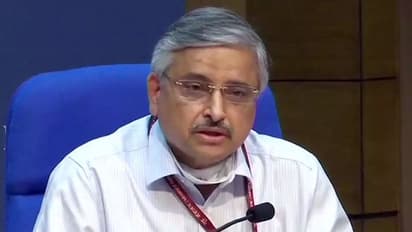Third wave inevitable, could hit in 6 to 8 weeks; lack of COVID-appropriate behaviour in India: AIIMS chief

Synopsis
Randeep Guleria said Indians don’t seem to have learnt lessons from what happened in the country during the first and second waves of the pandemic.
New Delhi: A third Covid wave in India is "inevitable", and it could hit the country in the next six to eight weeks, AIIMS chief Dr Randeep Guleria told NDTV this morning amid unlocking in parts of the country after weeks of strict restrictions.
There is a lack of Covid-appropriate behaviour after the easing of restrictions across India. Indians don’t seem to have learnt lessons from what happened in the country during the first and second waves of the pandemic, he said.
“Again crowds are building up, people are gathering,” he said. “It will take some time for the number of cases to start rising at the national level. But it could happen within the next six to eight weeks, may be a little longer. “It all depends on how we go ahead in terms of Covid-appropriate behaviour and preventing crowds.”
“We have to factor in human behaviour while unlocking, which needs to be done in a graded manner,” Guleria added.
The AIIMS chief said that districts with a Covid-19 positivity rate of more than 5% should enforce mini-lockdowns. He also emphasised on the need to follow the “test, track and treat” strategy in infection hotspots.
“A new wave can usually take up to three months but it can also take much lesser time, depending on various factors,” he added. “Apart from Covid-appropriate behaviour, we need to ensure strict surveillance.”
In another, a Reuters poll of medical experts said that a third wave of coronavirus infection remain a public health threat for at least another year.
The June 3-17 snap survey of 40 healthcare specialists, doctors, scientists, virologists, epidemiologists and professors from around the world showed a significant pick-up in vaccinations will likely provide some cover to a fresh outbreak.
Of those who ventured a prediction, over 85% of respondents, or 21 of 24, said the next wave will hit by October, including three who forecast it in as early as August and 12 in September. The remaining three said between November and February.
But over 70% of experts, or 24 of 34, said any new outbreak would be better controlled compared with the current one, which has been far more devastating - with shortage of vaccines, medicines, oxygen and hospital beds - than the smaller first surge in infections last year.
"It will be more controlled, as cases will be much less because more vaccinations would have been rolled out and there would be some degree of natural immunity from the second-wave," said Dr Randeep Guleria.
Nearly 5% of the country's population has so far been vaccinated with two doses. The government aims to vaccinate 108 crore of over 130 crore people in the country by the end of this year.
NOTE: Asianet News humbly requests everyone to wear masks, sanitize, maintain social distancing and get vaccinated as soon as eligible. Together we can and will break the chain #ANCares #IndiaFightsCorona